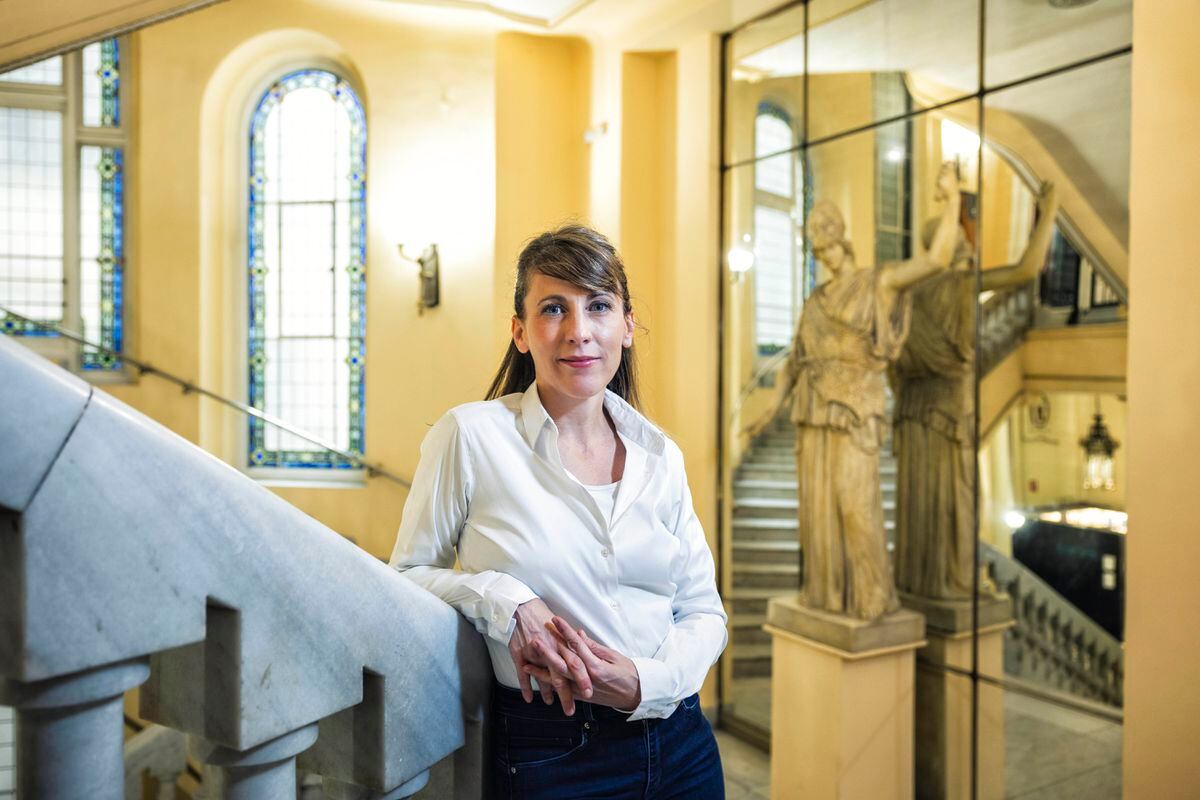Of all the war devices that appear in Iron Threads, the first novel by Inés González Lozano, the most fearsome is the mirror weapon: enemies are paralyzed when contemplating the scene of their own death. “The naked truth is an irresistible weapon, knowing your destiny is a sentence,” reflects the author. “That is why the mantics [videntes] They have deformed faces. The stark reality is ugly.” His book is the rigorously documented and scrupulously reliable history of a non-existent republic in an imaginary geography.
Ask. In his work appears a madman without a shadow who takes his stigma as a reward. What he says remembers the lyrics of the children’s song Let’s tell lies and, when he asks the protagonist if he wants to tell him his life, he answers: “The real thing or a lie?” Tell me yours.
Answer. I was born in Madrid 47 years ago, I am an only child and I have a daughter, my parents were labor lawyers and PCE activists. My mother was pregnant with me when the Atocha massacre took place. One of the injured, Lola González Ruiz, was her close friend. Another of the survivors, Luis Ramos, was my law teacher.
P. She then married a diplomat and went to Equatorial Guinea. There she could not defend the workers in court..
R. I ruled it out to avoid a conflict of interest, but I set up an NGO with women from a shanty town who made bags and sold them. The brother of one of them was very sick and they asked me to help him, although I couldn’t go see him because they said that, being white and having long hair, he would take me for a mermaid coming to hurt him. So I gave them an infusion called Carmencita Good Night. Two days later they returned shouting “miracle! miracle!” and they asked me to give it to them because white people’s medicines are better. I spent the day preparing infusions and I felt like a scammer.
P. His book is full of masterful herbal formulas…
R. They are all in the Hippocratic treatises and medical texts of antiquity, just like the dream cures from the Greek sanctuary of Asclepius.
P. In his novel, as in Guinea, medicine and magic, superstition and science are confused…
R. In ancient Rome, from which I am inspired, there was an official religion, in which they believed but less, and another popular one to solve everyday problems by appealing to supernatural powers. Tablets with curses, hexes or spells have been found.
P. There is also a trial, in which she will have poured her profession as a lawyer, and a corruption scandal.
R. My father’s name was Cristóbal, but my mother called him Tobal and the lawyer in the book, the one who defends the poor potter, is called Tobalano. Corruption seems very new, but in Rome it was the order of the day. Grain was subsidized by the state and, when a rotten batch arrived, there were debates in the Senate and riots. My father died when he was writing the novel and perhaps that is why it came out sadder than he had thought.
P. You talk about full moons lasting 30 nights, rivers that flow from the sea to the land and floating forests, also women who command the Army.
R. I wanted women to be warriors and that didn’t happen in Rome and even less so in Greece. A novel is a lie that the reader is willing to believe, leaving his disbelief in suspense. What is required of the writer is not that the story be real, but true.
P. One gets lost in the game between reality and fiction. It is not even easy to differentiate which words are archaic and which are invented.
R. I am a bit of a defender of lying, although as a journalist you will not agree. Always going with the truth first, the truth even if the world perishes, is a bit cruel. Lying doesn’t cure you, but at times it can relieve your pain, as long as you know how to control it. Lies can be a pain reliever and the truth, surgery without anesthesia.
